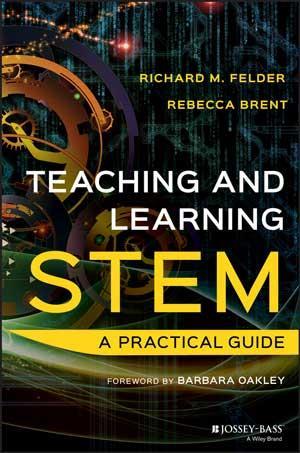Better teaching in HE

Teaching and learning STEM: A practical guide
Richard M Felder and Rebecca Brent
Jossey-Bass
2016 | 336pp | £30.99 (HB)
ISBN 9781118925812
http://amzn.to/1TcLbsl
Most of us that teach university STEM courses have not had training in how to teach. Our knowledge and experience of different strategies that could help our students learn is limited, as is our time to learn about those strategies; so we teach as we were taught and hope for the best. In Teaching and learning STEM: A practical guide, the authors provide an easily digestible description of research-based techniques university STEM instructors can use to improve teaching and learning in their courses.
The book is divided into three sections. Designing Courses focuses on events that occur before the first day a course meets, such as defining learning objectives, writing a syllabus, and planning class sessions. Teaching Courses looks at the course itself, providing advice about how to effectively integrate active learning into a course, use technology and evaluate students’ knowledge and skills. Facilitating Skill Development describes strategies that can build students’ problem-solving, professional and teamwork skills – capabilities valued by STEM employers.
I found the book easy to read and well organized. Each chapter starts with a list of questions to be addressed (eg ‘what can I do in class to maximize my students’ understanding of material I present?’). The main text is broken up into short, bullet point descriptions of easy-to-implement teaching strategies and the research that supports them. Every chapter ends with two sections I found extremely useful: ‘ideas to take away’ and ‘try this in your course’.
While the teaching strategies presented are not new, what makes this particular book useful is its STEM context. I appreciated the STEM-specific examples, the short and easy-to-understand descriptions of teaching strategies and the advice about the steps I could take to implement them in my courses without investing excessive amounts of time or effort. I felt as though an experienced and realistic colleague were giving me advice about how to improve my teaching, and isn’t that the best way to get advice?
Purchase a copy of Teaching and learning STEM: a practical guide from Amazon.co.uk









No comments yet